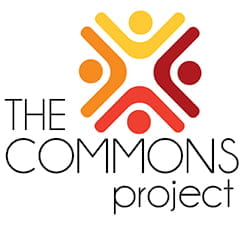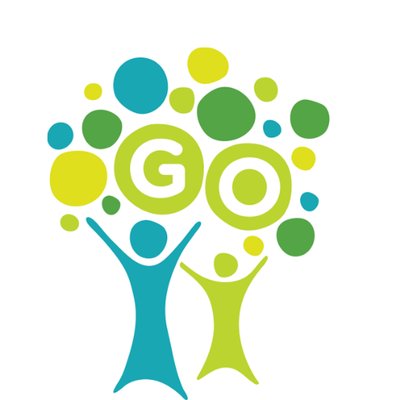The Commons Project
Make a connection — Make a difference
CREATIVITY — COLLABORATION — CONSEQUENCE

“The commons” is a term often used to describe those resources or spaces whose protection and cultivation are the shared responsibility of an entire community.
As a lens for approaching community engagement, we choose to interpret the idea of the commons broadly in examining our role as citizens of our school community and of the larger world. We believe the work of building and sustaining thriving communities is both a local and global endeavor that belongs to each of us in partnership; and while this work may take place within the space of a classroom, our neighborhoods, or across state lines or national borders, it is rooted in the foundational belief that “my humanity is tied to yours”–that the act of caring for the dignity, health, and safety of others is essential to realizing one’s own sense of place and purpose in the world and in creating vibrant, compassionate, inclusive communities.
Community Service Organizations/Opportunities
Ways to be an agent of change during a pandemic. Please let us know if there are other organizations/opportunities that we should include on this list. Email at-home@lrei.org with additions.
GO Project Volunteering during COVID-19
 The GO Project is committed to ensuring our students and families find the same deep level of support they have always found at GO. Many of our families are experiencing extreme hardships such as job loss and housing uncertainty, and the closing of New York City public schools means that our students—who are already at risk of falling behind—will suffer deep learning loss. You can help. Our volunteer community is essential to build our virtual academic support to capacity. Please consider one of the following opportunities to help our students continue to learn in their new home schools:
The GO Project is committed to ensuring our students and families find the same deep level of support they have always found at GO. Many of our families are experiencing extreme hardships such as job loss and housing uncertainty, and the closing of New York City public schools means that our students—who are already at risk of falling behind—will suffer deep learning loss. You can help. Our volunteer community is essential to build our virtual academic support to capacity. Please consider one of the following opportunities to help our students continue to learn in their new home schools:
Virtual Tutoring
Provide direct 1:1 tutoring support for students in grades 1 – 8 via video conference and phone. You will be matched with one student and assist with accessing and understanding the work assigned by their public school teacher. Sessions will occur once or twice weekly, with the average session lasting approximately 30 – 40 minutes.
- Requires access to a computer with video conference capacity.
- Student matches will be random and range of subjects will vary unless you request a particular grade level and/or subject (if you prefer to tutor an older student in middle school, please indicate a preference of math or ELA).
- A parent or guardian will be present during the sessions to offer you support as well as to help them with their child’s learning after the session has concluded; please note on the application form if you are fluent in Spanish, Mandarin, or Cantonese.
- You must be 16 years of age or older; all volunteers will require a background check.
- A 40-minute training session will be provided by GO staff to make sure you know what you’re doing before logging on with our students! GO will also provide weekly guidance and support as your tutoring sessions progress.
- Sign up to be a Virtual GO Volunteer here: Remote Volunteer Form.
#readwithGO
They’re like audio books, but with your voice and friendly face, recorded on your phone or computer. GO’s new virtual books will help students (and parents) continue the joy of reading at home. Pick an age-appropriate book, record yourself reading it aloud as you would to your own child, grandchild, niece, or nephew; upload the video yourself or send to GO and we will push out to our students; and watch the love of reading grow!
- Choose a book meant for children ages 5 – 10 (grades K – 4), and refrain from material that may be considered offensive or books with holiday themes.
- Keep the length of your read-aloud to less than 20 minutes. An average of 10 minutes or less would be ideal. No novels, please.
- Before you launch into reading, introduce yourself and briefly describe why you chose the book. Is it your favorite from childhood? How do the book’s themes, characters, or illustrations resonate with you or a young reader that you know?
- Upload the video to your own YouTube channel with the hashtag #readwithGO, or send your video to info@goprojectnyc.org and we will upload to GO’s YouTube channel.
Thank you!
Hunger/Food/Medical
- City Harvest, the food rescue organization, has a number of volunteer opportunities (some for teens). The mobile markets can take teens, but they have to be in touch with a youth coordinator. Anyone 18 and older can volunteer at their warehouse for repacking, which they are doing a lot of right now. More info at their site: https://www.cityharvest.
org/2020/03/covid-19/. - Community of Hope Minister of Homeless Outreach—From LREI Parent Carl Garrison: I direct a program for marginal & homeless members of the community and have had many LREI students volunteer with us, as well as scores of other schools. Since the onset of the virus , I am only allowing a few volunteers (5) who are not in a high risk category to assist me in distributing to go meals at our church door for guests who live marginally and or are homeless, as opposed to our many regular schools and families, who regularly volunteer with us. Marginal communities are part of the forgotten link in this pandemic, as they won’t be benefited by stimulus packages or bailouts. To that end , if this is an interest to anyone in this group & they were not in a high risk category , they can contact me directly at carl@manhattanchurch.org. The program runs every Saturday at Manhattan Church of Christ
(48 east 80th Street, NYC, 10075) from 10:ooam-12:30pm. I have gloves, hairnets , masks , and surfaces are cleaned every twenty minutes. - No Kid Hungry – We’re helping schools and community groups find new ways to feed kids who no longer have access during school closures.
- Feeding America – No one should go hungry during the COVID-19 pandemic. Emergency food banks will work to fill the gap short-term for most families. (Enter your zip code at feedingamerica.org to find one near you.) If you’re able, consider volunteering with your local food bank or school district distributing breakfasts and lunches.
- Varied Organizations – which are helping people get food and medical help during the coronavirus pandemic – This article includes a list of organizations working to deliver food, medical supplies and aid to people locally, nationally and internationally.
- Why Hunger refers people in need across the U.S. to food pantries, soup kitchens, government nutrition programs and grassroots organizations.
Helping Others
- Ways to help nonprofits– This Washington Post article focuses on 19 different organizations that could use your help (some are linked in our list above).
- Helping neighbors get groceries – Invisible Hands; No contact courier service; #BedStuyStrong;
- Aunt Bertha’s- A network that connects people seeking help and verified social care providers that serve them. Aunt Bertha easily connects people to social services in their communities.
- Jimmy Fallon: see YouTube video broadcasts – each show features a charity/organization
Connect With Neighbors in Need Via NextDoor
Nextdoor is the neighborhood hub for trusted connections and the exchange of helpful information, goods, and services. In this time of need, by bringing neighbors together, we can cultivate a kinder world where everyone has a neighborhood they can rely on. Building connections in the real world is a universal human need. That truth, and the reality that neighborhoods are one of the most important and useful communities in our lives, has never been more important than now.
The #DoGoodFromHome Challenge
Design for Change USA Change Makers!